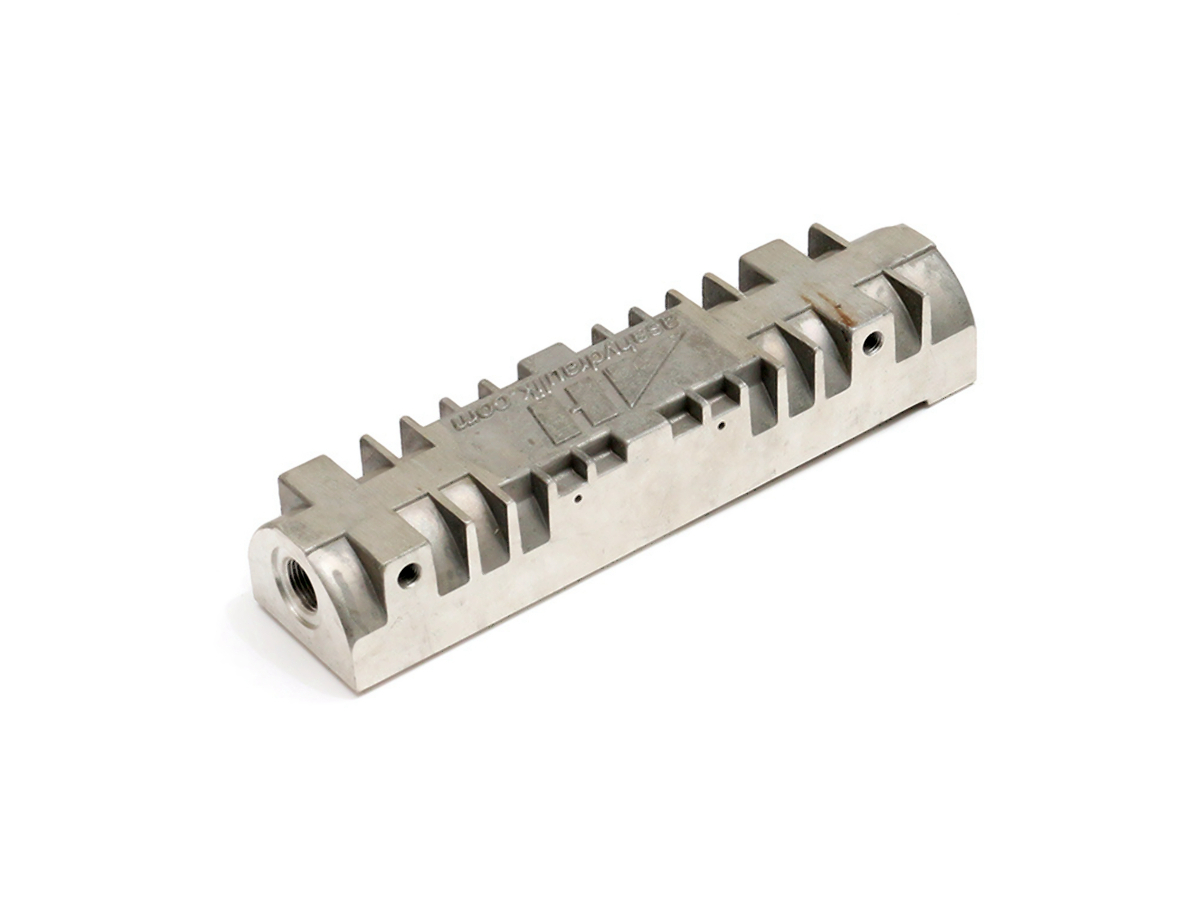Gravity Casting Innovations: Accelerating Performance in Electric Vehicle Production
Introduction
As electric vehicles (EVs) rapidly reshape the automotive landscape, manufacturers seek innovative solutions to enhance vehicle efficiency, extend driving ranges, and reduce environmental impacts. Gravity casting, an advanced and precise casting method, has become crucial in EV component manufacturing. Automakers can use gravity-casting innovations to produce lightweight, high-strength, and complex EV components that optimize electric vehicle performance.
This blog will explore the gravity casting process's significance for electric vehicle production. We'll highlight the latest materials for EV components, advanced surface treatments enhancing part performance, and critical EV applications. Understanding these innovative advancements allows manufacturers to achieve improved vehicle performance and long-term sustainability.
Gravity Casting Process for Electric Vehicle Manufacturing
Gravity casting is a precision-oriented metal casting technique that employs gravity to pour molten metal into carefully crafted molds. Unlike high-pressure die casting, gravity casting relies solely on gravity without external force, resulting in uniform solidification, minimal porosity, and excellent mechanical properties ideal for EV components.
The gravity casting process starts with precision mold creation, typically using sand or permanent metal molds designed to match component geometries. Molten metal, heated above 700°C, is poured directly into these molds, solidifying uniformly to produce highly accurate and structurally sound EV components.
Gravity casting is advantageous for EV manufacturing due to its high dimensional accuracy, achieving typical tolerances within ±0.5% of the designed specifications. Additionally, gravity casting yields parts with exceptionally low porosity (less than 0.1%), ensuring superior mechanical strength and reliability required for critical EV applications.
Advanced Materials for EV Gravity Casting
Selecting appropriate materials for gravity casting is crucial for achieving electric vehicle performance targets such as weight reduction, enhanced thermal management, and structural integrity. Several advanced materials are particularly beneficial for EV component manufacturing.
AlSi12 Aluminum Alloy is increasingly utilized in gravity-cast EV components due to its excellent thermal conductivity and lightweight characteristics. With a tensile strength of approximately 220 MPa, hardness of around 95 HB, and density of around 2.65 g/cm³, AlSi12 efficiently manages heat dissipation. It reduces overall vehicle weight, ideal for battery casings and motor housings.
AC4C Aluminum Alloy offers exceptional mechanical properties suitable for structural EV parts. With tensile strengths reaching approximately 260 MPa and hardness values up to 100 HB, AC4C aluminum provides excellent fatigue resistance and structural integrity for EV chassis and suspension components.
Corrax (CX) Stainless Steel is an innovative precipitation-hardening stainless steel featuring exceptional corrosion resistance, high strength (tensile strengths over 1200 MPa achievable after heat treatment), and hardness ratings up to 50 HRC. Corrax stainless steel is ideal for EV drivetrain components, structural reinforcements, and battery module frames requiring enhanced durability and reliability.
Copper Alloys provide superior electrical and thermal conductivity, with tensile strengths typically around 350–550 MPa, making them indispensable in gravity-casting high-performance EV components such as electrical connectors, bus bars, and intricate cooling system parts.
Surface Treatments Enhancing EV Component Performance
Advanced surface treatments applied to gravity-cast EV parts significantly improve corrosion resistance, thermal management, and longevity, critical to EV reliability and efficiency.
Powder Coating provides a robust protective finish approximately 50–100 µm thick, significantly enhancing resistance to corrosion, UV degradation, and abrasion. Powder-coated gravity-cast components such as battery trays, chassis parts, and suspension arms benefit from superior durability under harsh operational environments.
Teflon (PTFE) Coating offers exceptionally low friction and high-temperature stability (up to 260°C), ideal for EV drivetrain components, motor casings, and moving parts requiring smooth operation, heat resistance, and reduced energy loss.
Electroless Nickel Plating enhances surface hardness (450–550 HV), corrosion resistance, and wear resistance, providing exceptional protective qualities essential for battery connectors, terminals, and cooling system components in EV applications.
Passivation is commonly used on stainless steel parts, forming a protective oxide layer and significantly improving corrosion resistance. Passivated stainless steel gravity-cast components, such as battery housing frames and high-voltage connectors, deliver reliable long-term performance.
Advantages of Gravity Casting for EV Components
Gravity casting innovations offer substantial benefits for EV manufacturing, including:
Improved Strength-to-Weight Ratio: Advanced aluminum alloys and stainless steels enable lighter EV components without compromising structural integrity.
Precision and Consistency: Achieving tight tolerances ensures perfect component integration, optimizing EV performance.
Enhanced Thermal Management: Exceptional thermal conductivity and stability allow efficient heat dissipation in critical battery and drivetrain applications.
Economical Large-scale Production: Gravity casting’s cost efficiency is ideal for mass-produced EV components, reducing overall production costs.
Reliability and Durability: Low porosity, advanced materials, and surface treatments guarantee durable and high-performing EV parts.
Considerations in EV Gravity Casting Production
Effective gravity casting in EV production requires several critical considerations:
Material Selection: Matching alloys to performance requirements such as thermal management, electrical conductivity, and lightweight design.
Mold Design Optimization: Ensuring uniform metal flow, minimizing defects, and guaranteeing structural integrity.
Cooling and Solidification Control: Controlling cooling rates to prevent defects and achieve uniform mechanical properties.
Quality Assurance: Rigorous non-destructive testing (NDT), including ultrasonic, X-ray, and dimensional inspections.
Environmental Management: Managing temperature and humidity in casting environments for consistent high-quality outcomes.
Applications of Gravity-Cast Components in Electric Vehicles
Gravity casting significantly accelerates performance in electric vehicle production, with key applications including:
Electric Vehicle Battery Housings: Robust, lightweight aluminum enclosures providing efficient thermal management and reliable battery protection.
Electric Motor Casings: Precision-engineered housings ensure optimal heat dissipation, motor performance, and durability under high-torque applications.
Vehicle Structural Components: High-strength aluminum and stainless steel frames, suspension arms, and chassis parts enhance vehicle safety, stability, and driving dynamics.
Pump and Valve Parts: High-performance cooling and fluid system components essential for maintaining optimal operating conditions in EV battery and drivetrain systems.
Gravity casting innovations allow EV manufacturers to produce superior-quality components, driving electric vehicle performance toward a more sustainable and efficient future.
Related FAQs:
What makes gravity casting ideal for electric vehicle components?
Which advanced materials are commonly used for gravity casting EV parts?
How do surface treatments enhance gravity-cast electric vehicle components?
What electric vehicle components can benefit most from gravity casting innovations?
What production considerations are essential for gravity casting EV components?

